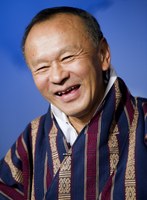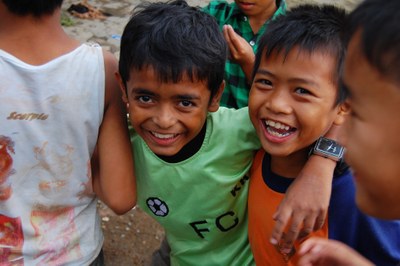The High Level Meeting “Happiness and Well-being: Defining a New Economic Paradigm” was hosted on 2 April by the Government of Bhutan at the UN headquarters in New York. It brought together hundreds of representatives from governments, religious organisations, academia and civil society to discuss the issue.

Prime Minister of Bhutan, Lyonchoen Jigmi Yoezer Thinley
The discussion was chaired by Jacqueline McGlade, Executive Director of the European Environment Agency (EEA).
“The economic crisis, accelerating environmental degradation and growing discontent around the world all point to one conclusion – GDP as the sole measure of success has reached the end of the road,” she said. “In the future we will look back on this meeting as a turning point – it is now evident that many of the most influential people in the world agree that we need to reconsider what makes us happy. It is clearly not rampant consumerism.”
Many environmental analyses carried out by the EEA underline the importance of breaking the link between environmental damage and economic growth if we are to achieve continued prosperity, without destroying the natural systems that sustain us. The EEA is also working on alternative approaches to measuring progress, such as valuing the services provided by ecosystems which are essential to human wellbeing.
Speaking at the meeting, Secretary-General of the UN Ban Ki-Moon said: “We need an outcome from Rio+20 that says that happiness and well-being are measured in more than gross national income — and that they are fundamental goals in themselves.”
What makes us happy?
Like Bhutan, Costa Rica often tops lists of the happiest countries and is an exemplar of environmental protection. In a keynote address, President Laura Chinchilla described Costa Rica’s development of democratic institutions, education, environmental conservation and justice as major milestones in their success. “I represent a country that, despite its modest resources, has managed to continually improve the quality of life of its people,” she said.
India’s Environment Minister Jayanthi Natarajan also stated her support for the idea that “human development should be based in equal measure on material progress, social inclusion, cultural life and living in harmony with nature.” Japanese minister Joe Nakano noted that “happiness is not proportional to economic wealth” in his country.
Several sessions over the course of the meeting aimed to define the different elements of happiness, outlining a vision which Nobel Laureate Joseph Stiglitz called “a new economic paradigm”. In addition to psychological and physical wellbeing, panellists discussed elements of ecological sustainability, efficient resource use and equitable distribution of resources.

Happiness and Rio+20
The discussion of happiness will feed into the UN Earth Summit in Rio de Janeiro later this year, also known as Rio+20. In Rio governments will debate a series of Sustainable Development Goals (SDGs) setting targets for diverse criteria such as resource use, renewable energy and food security, as well as continuing the current debates on happiness and wellbeing.
The Speaker of the Parliament of Finland, Eero Heinäluoma said that his country sees the Rio summit “as a unique opportunity to rethink the current perception of growth and consumption.”
He continued: “Let us support Rio+20 by making a political commitment to establish new indicators, then by committing ourselves to a UN-led process for developing such measures and lastly by mainstreaming the new measures into policy-making.”


Document Actions
Share with others